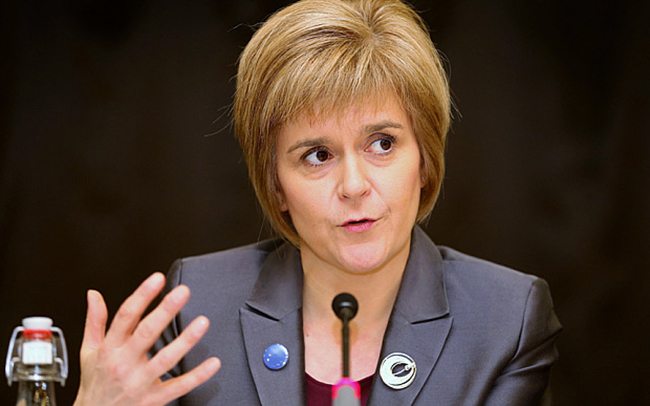In a speech in Edinburgh to mark Scots’ decision to remain in the U.K. by a margin of 55 percent to 45 percent, Sturgeon cited Cameron’s commitment to renewing Britain’s Trident nuclear-weapons system, which is based in Scotland, as an example of decisions likely to push voters toward separation. Sturgeon’s Scottish National Party won 56 out of Scotland’s 59 seats in the House of Commons in May’s general election.
“Right now, you are living on borrowed time,” Sturgeon said. “If you continue to ignore Scotland’s voice, if you continue to disrespect the choice that people across this country made in May, more and more people will conclude that Westminster simply can’t deliver for Scotland.”
Sturgeon is working to maintain momentum for independence, while holding off those on her own side who want a second referendum soon. In the Speech, covered by Bloomberg, she repeated her commitment to set out in the manifesto for next year’s Scottish Parliament elections the circumstances in which another popular vote would be justified.
“In the last 12 months, there have been 24 polls on independence,” Sturgeon said. “Every single one has shown support for independence higher than it was on this day last year — some have even put independence in the lead.”
She said that “if Scotland was to find itself facing an EU exit that we hadn’t voted for” in the referendum promised by Cameron by end-2017, “demand for a second independence referendum could well be unstoppable.”
Meanwhile, in his own anniversary message, Cameron said the SNP “want to obsess about separation” and reminded Sturgeon of her description of the referendum as a “once-in-a-generation” event.
“One year ago Scotland’s majority spoke,” Cameron said in a statement. “More Scots voted to keep our kingdom united than have ever voted for any party in any election in Scottish history. So now it is time to move on.”


